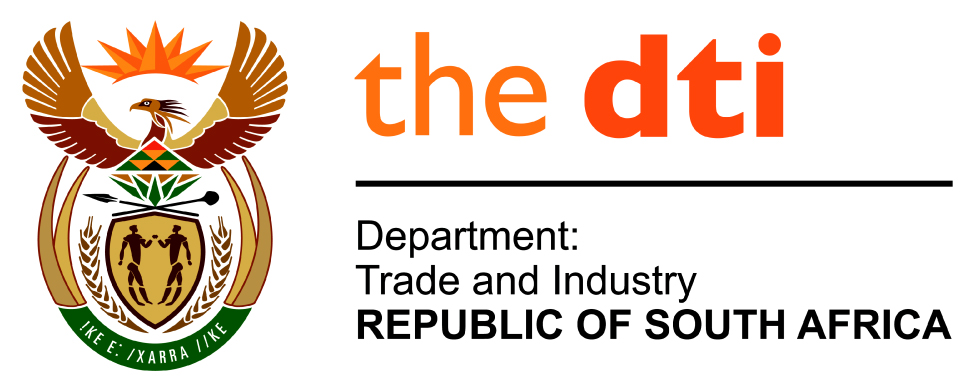South Africa’s DTI calls for the finalisation of AfCFTA tariff schedules so to meet Implementation Date
Source: thedti.gov.za
One of the immediate tasks of the African Continental Free Trade Area (AfCFTA) is to ensure that the tariff schedule listing all products covered by the agreement for tariff liberalisation and the indispensable rules of origin are finalised to ensure that the implementation date of 1 July 2020 is met. Therefore, the current administration has a responsibility to work with other African Union member states to finalise the detailed modalities in order to establish a platform on which the benefits of the AfCFTA can be derived for both South Africa and its African counterparts.
This was said by the Deputy Minister of Trade and Industry, Mr Fikile Majola during an Economic Policy Dialogue to unpack the AfCFTA which took place in Cape Town. He emphasized that there was a need to be ready to take full advantage of the opportunities that will become available in the ongoing implementation of AfCFTA agreement and that should create a more open integrated continental market and enhanced intra-Africa trade “While this policy dialogue aims to discuss the AfCFTA with the intention of determining its bearing on South Africa, it is prudent to give a glimpse into the possible trade and economic spin-offs for our country.
Though some opinion-makers indicate that the AfCFTA is very ambitious because of the many disparities between the countries development stages, especially relating to trade capabilities, infrastructure and administrative frameworks such as competition and intellectual property policies, however, notwithstanding such deficiencies we are confident that the potential benefits of the AfCFTA will be significant in increasing intra-Africa trade and foreign direct investment,” said Majola. He further stressed that the imperative for Africa’s economic integration agenda was more urgent than ever as the continent it contended with the world economic downturn and impending uncertainty. “Africa’s vulnerabilities and limited participation in global trade is a function of its traditional over-dependence on the export of low-value raw materials and commodities and the import of high-value manufactured goods and services.
The continent’s full potential will remain unfulfilled unless we address the challenges of poor infrastructure, small and fragmented markets, underdeveloped production structures and inadequate economic diversification,” he said. The Western Cape Minister of Finance and Economic Opportunities, Mr David Maynier described the dialogue as an ideal opportunity to build on the ambition for his province to be a key trading region for Africa. “That is why we seek your and the business sector’s inputs so that we can better understand how to make it easier for you do business across Africa. That is why this dialogue between provincial and national governments and the business sector on the subject of the AfCFTA is going to be so important,” he said.



